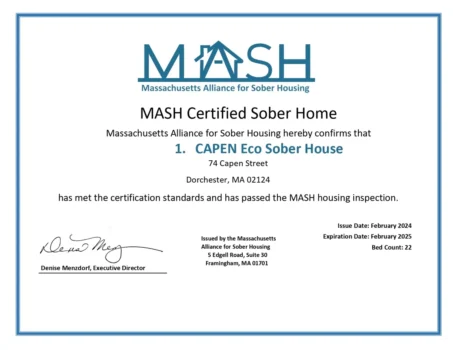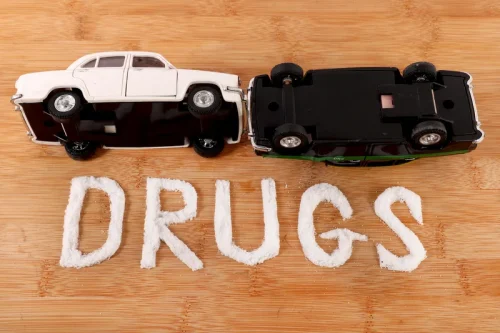
For example, there is some anecdotal evidence and some analyses using social media showing that people on GLP-1 RAs report drinking less alcohol. «This means that many people with alcohol use disorders are left untreated, leading to prolonged challenges in managing their condition. Researchers from The University of Western Australia have found medications used to treat alcohol use disorders are severely underutilized in Australia. The screening and assessment process of substance use behavior is important for the diagnosis and treatment of substance use disorders.
Prevention and Risk Factors
In more severe cases, people may also have seizures or hallucinations. Many people with alcohol problems and their family members find that participating in support groups is an essential part of coping with the disease, preventing or dealing with relapses, and staying sober. Your health care provider or counselor can suggest a support group.

Is alcohol use disorder treatment different for pregnant women and mothers of newborns?
Their primary outcome is improvement in alcohol-related liver disease, but they’re also looking at alcohol drinking as a secondary outcome. That’s very important because, unlike in the diabetes field, in the addiction field, we do struggle to build partnership https://ecosoberhouse.com/ with the private sector because sometimes the addiction field is not seen as an appetitive field from pharma. More important, we educate our patients when they go through the consent process. We tell them that this medication per se does not give hypoglycemia.
How is alcohol use disorder diagnosed?
- Medications also can help deter drinking during times when individuals may be at greater risk of a return to drinking (e.g., divorce, death of a family member).
- These include increased heart rate, sweating, anxiety, tremors, nausea and vomiting, heart palpitations, and insomnia.
- We’ve seen in some previous clinical trials, including many from your group, that alcohol use is known to be reduced — the overall risk of incidence, as well as recurrence of alcohol use — in individuals who are on GLP-1 RA therapy.
- You could argue that the downside is not treating these people and they die because of alcohol addiction.
Many people with AUD do recover, but setbacks are common among people in treatment. Seeking professional help early can prevent a return to drinking. Behavioral therapies can help people develop skills to avoid and overcome triggers, such as stress, that might lead to drinking. Medications also can help deter drinking during times when individuals may be at greater risk of a return to drinking (e.g., divorce, death of a family member). Too much alcohol affects your speech, muscle coordination and vital centers of your brain.
- Individuals interested in the study used a QR code or a link from the study website to complete a secure, web-based screening survey.
- Both alcohol, barbiturate as well as benzodiazepine withdrawal can potentially be fatal.
- If you think you or someone you care about has alcohol use disorder, here are some next steps you can take.
- The criteria include having a pattern of consumption that leads to considerable impairment or distress.

Yale Medicine’s approach to alcohol use disorder is evidence-based, integrated, and individualized. Our specialists utilize a range of medication and behavioral methods with demonstrated efficacy for helping individuals change their drinking habits and maintain these changes long-term. Care is integrated with patients’ other health care to improve treatment access, reduce costs, and promote better physical and mental health outcomes. Peer specialists are certified recovery coaches who have lived experience with substance use and/or mental health issues. They were not assigned to individual participants but were available to any participant who reached out via Tula’s private messaging feature.
The NIAAA Core Resource on Alcohol can help you each step of the way. It is important to remember that AUD is not due to an individual’s lack of self-discipline or resolve. Long-term alcohol use can produce changes in the brain that can cause people to crave alcohol, lose control of their drinking and require greater quantities of alcohol to achieve its desired effects. It can also cause people to experience withdrawal is alcoholism a mental illness symptoms if they discontinue alcohol use. For example, if you’re receiving treatment for a condition related to alcohol use, like cirrhosis of the liver, you should ask your healthcare provider about changes in your body that may be new symptoms. If you’re receiving counseling, ask your provider about handling high-stress situations when you may feel like you need some additional mental health support.


With that said, we don’t think that the effect of the GLP-1 RAs is merely due to alcohol being a calorie-based nutrient because, in fact, we see alcohol as an addictive drug, not as a nutrient. Also, the GLP-1 RAs, at least in animal models, seem to work on other addictive drugs that don’t have calories, such as nicotine, and possibly with cannabis, opioids, and stimulants. They may be able to stop after two or three drinks, which means a significant harm reduction and a beneficial outcome. This also brings us to another mechanism, which may be related to society. We don’t fully understand how much the society mechanism, including society mechanism related to GI motility, may also play a role. Why is GLP-1 RA having this effect on alcohol use disorder?
What is considered 1 drink?
It can be life-threatening, causing serious medical issues like seizures and hallucinations that require immediate medical care. Alcohol use disorder is a pattern of alcohol use that involves problems controlling your drinking, being preoccupied with alcohol or continuing to use alcohol even when it causes problems. This disorder also involves having to drink more to get the same effect or having withdrawal symptoms when you rapidly decrease or stop drinking. Alcohol use disorder includes a level of drinking that’s sometimes called alcoholism. There is also some evidence for another medication, baclofen, which has been endorsed by the American College of Gastroenterology for patients with alcohol addiction and liver disease. With some substances, stopping or reducing use can cause withdrawal symptoms to occur,[18] but this is highly dependent on the specific substance in question.
